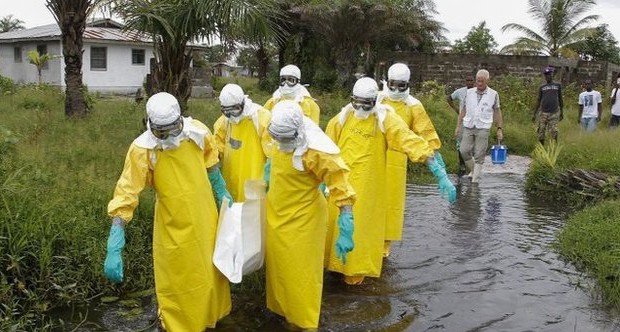
Leading international health authorities called Thursday for renewed vigilance over the Ebola epidemic, urging caution over claims of a slowdown in new cases.
The warning follows an announcement this week by World Health Organization (WHO) that data from funeral directors and treatment centers indicated a potential drop in admissions and burials in Liberia, the nation hit hardest by the deadly virus.
But international aid organization Doctors Without Borders said the apparent slowdown could be illusory, as incomplete data and poor management of Ebola patients continue to complicate reporting efforts. They warned that a lack of ambulances in the country is preventing many sick people from reaching treatment centers, indicating that a large number of Ebola cases could be missing from the statistics.
The charity, known by its French initials MSF, said “mandatory cremation of dead bodies and a poor ambulance and referral system could also be reasons for this decrease in admissions”.
“It is too soon to draw conclusions on the reduction of Ebola cases in Monrovia,” Fasil Tezera, MSF head of mission in Liberia, said in a statement.
Slowdown could be illusory
WHO assistant director-general Dr. Bruce Aylward said on Wednesday that labs were seeing a “plateauing or slight decline” in the number of confirmed cases—but warned that the crisis was far from over.
“Getting a slight decrease in the number of cases on a day-to-day basis versus getting this thing closed out is a completely different ball game,” Dr. Aylward said. He added that he was “terrified that the information will be misinterpreted and that people will begin to think Ebola is under control.”
Liberia welcomed the possibility of a turning-point in the outbreak but echoed the call for caution issued by the WHO and MSF. Health officials say that even if they managed to achieve no new cases, Liberia would not be able to consider itself Ebola-free until neighbors Guinea and Sierra Leone have eradicated the virus.
Several times throughout this outbreak, including in Liberia, officials have thought the disease’s spread was slowing, only to surge again later. They have attributed those false lulls to cases being hidden because people were too afraid to seek treatment, wanted to bury their relatives themselves, or simply weren’t in contact with authorities.
The outbreak has claimed almost 5,000 lives, according to the WHO—almost all in Liberia, Guinea and Sierra Leone—while the number of cases registered worldwide has soared to 13,703.
Malaria threat
While Ebola ravages the West African region, it is also devastating the response to other deadly diseases with much higher annual case counts.
MSF warned this week that the epidemic had made obtaining treatment for malaria, which is endemic in Liberia, almost impossible in the capital, because of the “collapse of the healthcare system”. The majority of primary health centers in the capital, Monrovia, are closed, with staff too afraid to work, the group said, and in the rare clinics remaining open, patients showing fever are sent to Ebola centers.
“The first symptoms of malaria are the same as those of Ebola,” said Chibuzo Okonta, MSF’s deputy director of emergency programs. “They include fever, headache and overwhelming fatigue.”
The agency said it had begun distributing antimalarials to around 300,000 people in the city’s poorest, most densely-inhabited neighborhoods. “The objective is also to eliminate the risk that patients with fever, suspected of having Ebola, will end up in Ebola treatment centers in contact with infected persons,” Okanta added.
Malaria remains the leading cause of death in Liberia, with 1.7 million cases in 2012 according to the health ministry, 1,800 of them fatal.
